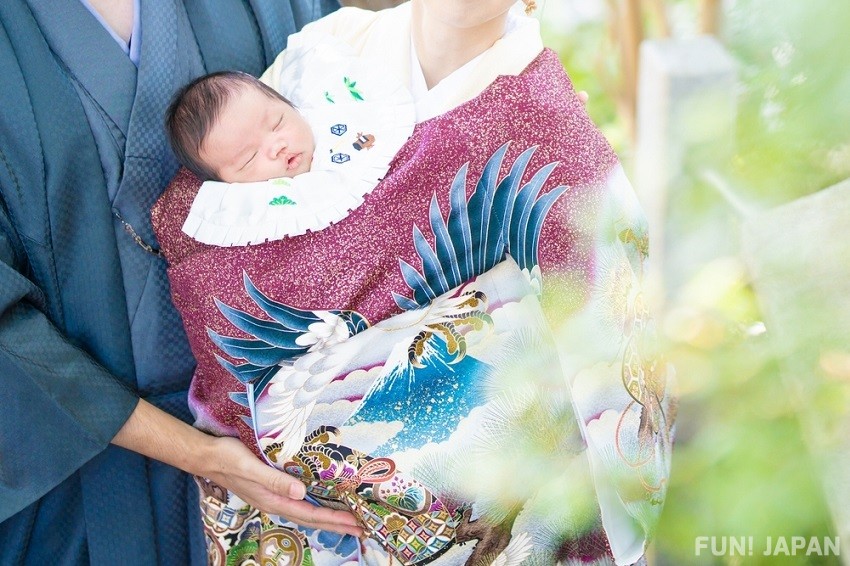
In Japan, there are many surnames. All Japanese people use a surname, which is inherited from their ancestors. Most Japanese households even have a family crest called "Kamon". In this article, we will introduce common Japanese surnames and popular names.
Structure of Japanese Names
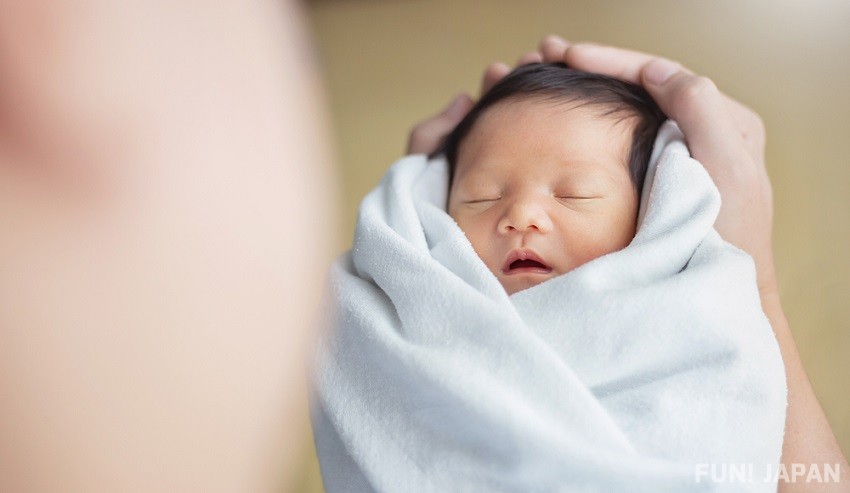
Generally, a Japanese person's name is composed of a "family name (surname) + personal name (first name)", which is referred to as "姓名 (Seimei)" or "氏名 (Shimei)".
By the way, in Japanese, the "surname + first name" is often also written as "Myoji (surname) + Namae (first name)".
- In the case of the family name (surname) , some people call it 苗字 (Myoji) or 名字 (Myoji).
- For the personal name or given name, some call it 名 (Na).
Change of surname upon marriage or divorce
Women often change their surname from their parents' name to their husband's family name when they get married. However, in informal settings such as social media, some people add both their pre-marriage and post-marriage names to make it easier for friends to search. Also, at work, some people continue to use their maiden name after marriage to avoid confusion among colleagues. There are not a few companies that have rules stating that "you can use your maiden name".
※In cases of adoption, the man's surname may also change.
How to Write Japanese Names in Kanji and Alphabet Characters
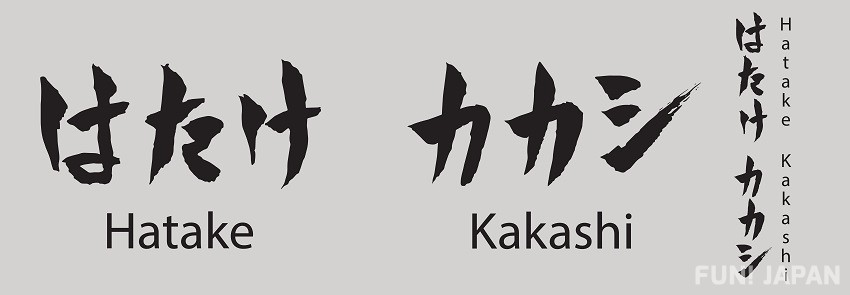
How do Japanese people write their names in kanji? The order is usually surname first, followed by the given name. Alternatively, when written in Romanized form, like in Western countries, the given name typically comes first, followed by the surname.
However, since 2019, when writing Japanese names in Romanized form in official documents, the order is the same as when writing in kanji, i.e., "surname → given name". Also, all characters of the surname are now written in capital letters.
For example, "鈴木太郎" (すずき・たろう= Suzuki Taro).
- 鈴木/Suzuki is the surname
- 太郎/Taro is the given name
The way of written in alphabet, it's SUZUKI Taro, not Taro Suzuki. This policy was announced by Japan's Minister of Education, Culture, Sports, Science and Technology (at the time), HAGIUDA Koichi, at a press conference on October 25, 2019.
Common Japanese Surnames Seen in Japanese Society
Below is a list of surnames commonly seen in Japanese society.
| Rank | 漢字 (Kanji) | ひらがな (Hiragana) | ローマ字 (Romaji) |
| 1 | 佐藤 | さとう | Satou |
| 2 | 鈴木 | すずき | Suzuki |
| 3 | 高橋 | たかはし | Takahashi |
| 4 | 田中 | たなか | Tanaka |
| 5 | 渡辺 | わたなべ | Watanabe |
| 6 | 伊藤 | いとう | Itou |
| 7 | 山本 | やまもと | Yamamoto |
| 8 | 中村 | なかむら | Nakamura |
| 9 | 小林 | こばやし | Kobayashi |
| 10 | 加藤 | かとう | Katou |
| 11 | 吉田 | よしだ | Yoshida |
| 12 | 山田 | やまだ | Yamada |
| 13 | 佐々木 | ささき | Sasaki |
| 14 | 山口 | やまぐち | Yamaguchi |
| 15 | 松本 | まつもと | Matsumoto |
| 16 | 井上 | いのうえ | Inoue |
| 17 | 斎藤 | さいとう | Saitou |
| 18 | 木村 | きむら | Kimura |
| 19 | 林 | はやし | Hayashi |
| 20 | 清水 | しみず | Shimizu |
* Source: Meiji Yasuda Life Insurance Company "National Same-Surname Survey" in 2018
Unique and Interesting Japanese Surnames
Also, if you understand the meaning of kanji, you may come across unique and unusual surnames that surprise you when you read them.
Here are some unique Japanese surnames.
- 鬼 (Oni): Oni is famous in Japanese folklore. Oni means "demon", and although it is often portrayed as a villain in fairy tales, it is also used as a surname.
- 砂糖 (Satou): One of the most common surnames in Japan is "Satou". Although it is often written in kanji as "佐藤", there are also surnames written in the same pronunciation "Satou" but with the kanji for "砂糖". However, in reality, it is a word meaning "sugar" and is not very common as a surname.
- 無敵 (Muteki): "Muteki" is the kanji for "invincible" or "unrivalled". As the word suggests, it means "no enemies", and this surname sounds very strong.
- 鰻 (Unagi): Unagi means the fish "eel". This is a very rare name, with only about 10 people nationwide in Japan with this surname. It is very special.
- 御手洗 (Mitarai): It is said that there are more than 5,000 people with this surname nationwide, but it is a very unique surname. Why? Because it uses the same kanji as when writing "otearai", which means "toilet" in Japanese.
Rare Japanese Surnames
Apart from the unique and interesting, there are also some very rare Japanese surnames.
- 竈門 (Kamado/Kamakado): It is estimated that there are only 10 people in Japan with this name. It originates from a sacred place that enshrined the god of fire, such as a kiln for making salt or pottery. It is also related to the surname (kamado) and the hearth (kamado). It was found in Hyogo Prefecture.
- 不死川 (Shinazugawa, Fujigawa): It is estimated that there are only 10 people in Japan with this name. It comes from the etymology of Fujigawa (藤川). In recent years, it has been found in Habikino City, Osaka Prefecture and Kitakatsuragi District, Nara Prefecture. It is said to be the surname of a temple opened by a monk of the Jodo Shinshu Honganji sect.
- 小鳥遊 (Takanashi): It is estimated that there are only 30 people in Japan with this name. Its kanji characters literally mean "small bird at play". The pronounciation implies that there are no natural enemies like hawks (Taka means hawk and Nashi means none). It is also a surname often used in recent works of fiction.
Some Points to Consider When Naming a Child in Japan
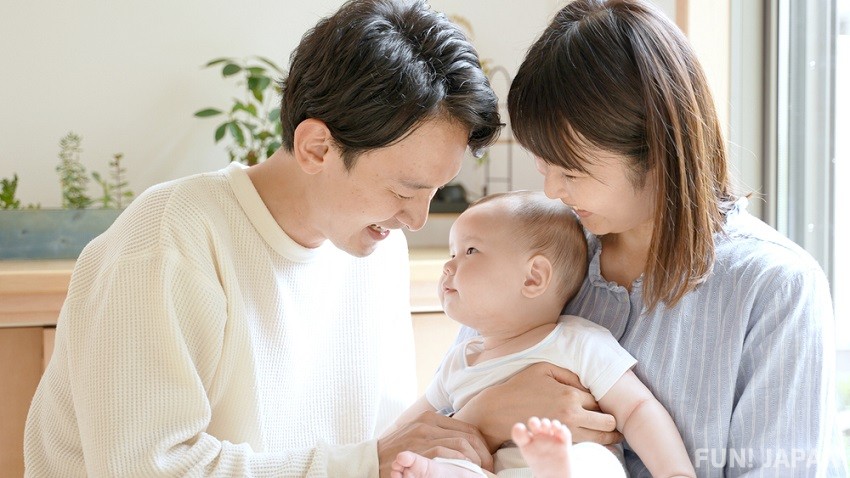
For Japanese people, choosing a child's name is considered to be extremely important as it is believed to influence the child's future. Some points to consider are as follows.
① Number of strokes in Kanji
Names are often written using Kanji, and many people take into account the number of strokes in the Kanji. The number of strokes is thought to potentially influence the child's fortune, regardless of whether it brings luck or not.
② Meaning of the name and Kanji
It is essential to consider the meaning of the name and the meaning of the Kanji used. The most common approach is to choose a name with a positive meaning, often related to family traditions.
③ Pronunciation
It is better if it is easy to pronounce in Japanese.
④ Cultural Background
Japanese people prefer to choose names that align with family culture and traditions.
⑤ Number of Syllables
Typically, Japanese names are composed of two or three syllables.
Example:
- たろう (た-ろう) / Tarou (Ta-Rou): 2 syllables
- さくら (さ-く-ら) / Sakura (Sa-Ku-Ra): 3 syllables
⑥ Gender Differentiation
It is also important to clearly distinguish between male and female names. However, there are many names like "Aoi", "Hinata", "Tsubasa" that can be used for both genders and are popular.
⑦ Sacred Meaning
Some people may prefer to choose names with a sacred or spiritual meaning.
Example: 神翔 (Shinto)
Explanation: The kanji "神" used in the name means "object of religious faith, god of Japanese mythology" in Japanese. It also has a "fantastic" image, and the kanji "翔" has images of "sky", "active", "future", "grand".
⑧ Kanji and Katakana
While most names use Kanji, it's not uncommon to find people with names in Hiragana or Katakana.
⑨ Advice from other family members and relatives
When deciding on a baby's name, it's important to listen to and respect the opinions of family and relatives.
The choice of a name is a very personal matter, and it's important to choose a name that is comfortable for the family in order to fulfill the wishes of the family and parents.
Some rules to follow when deciding on a Japanese name
Here is some general knowledge about naming a newborn child.
- Parents need to decide on the child's name and submit a birth report within 14 days of the child's birth, as they need to register quickly with each local government.
- Based on a law called the "Family Register Law", you need to use common Kanji, Hiragana, or Katakana.
The meaning of Japanese names
Unlike surnames, when it comes to first names, they often reflect the trends of the time. Japanese parents tend to take inspiration from popular celebrities' names and current trends. Recently, there has been an increase in names using phonetic equivalents (using kanji characters that differ from their usual meaning or pronunciation), often referred to as "sparkling names" (kirakira ne-mu). More modern and unique names are becoming preferred, and traditional Japanese names are becoming less common.
Characteristics of Japanese Boys' and Girls' Names
In the case of traditional Japanese names, whether the child is a boy or a girl is indicated by the sound of the last character of the name.
- Boys' names: Typically, the last syllable of the given name ends with ~o, ~ro, etc., sounding more "strong" and "solid".
Examples: 一郎 (Ichiro), 勝男 (Katsuo), etc. - Girls' names: Typically, the last syllable of the given name ends with ~ko, ~mi, ~na, etc., resulting in a more flexible, gentle, and beautiful sound.
Examples: 加奈子 (Kanako), 真由美 (Mayumi), 明菜 (Akina), etc.
*However, the above rules are not 100% absolute in distinguishing whether it's a boy's or girl's name.
Popular Japanese Name Rankings
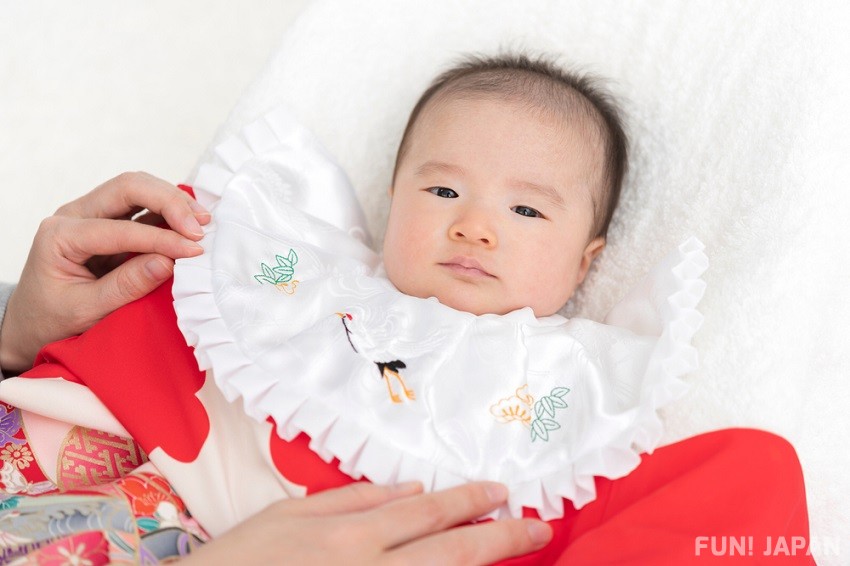
The following are the results of the top three in the "Baby Name Rankings" announced annually by Benesse Corporation, a major Japanese publisher, over the past 7 years.
Boys' Names
2018
- 1st 蓮 (Ren)
- 2nd 陽翔 (Haruto, Akito, Hyuga)
- 3rd 陽太 (Haruto, Youta, Hinata)
2019
- 1st 蓮 (Ren)
- 2nd 律 (Ritsu)
- 3rd 湊 (Minato, So, Kanade)
2020
- 1st 蓮 (Ren)
- 2nd 陽翔 (Haruto, Akito, Hyuga)
- 3rd 蒼 (Aoi, So, Sora)
2021
- 1st 蓮 (Ren)
- 2nd 陽翔 (Haruto, Akito, Hyuga)
- 3rd 蒼 (Aoi, So, Sora)
2022
- 1st 碧 (Ao, Aoi)
- 2nd 陽翔 (Haruto, Akito, Hyuga)
- 3rd 蒼 (Aoi, So, Sora)
2023
- 1st 蓮 (Ren)
- 2nd 碧 (Ao, Aoi)
- 3rd 陽翔 (Haruto, Akito, Hyuga)
2024
- 1st 碧 (Ao, Aoi)
- 2nd 蓮 (Ren)
- 3rd 凪 (Nagi)
2025
- 1st 碧(Ao)
- 2nd 湊(Minato)
- 3rd 陽翔(Haruto)
Girls' Names
2018
- 1st 陽葵 (Himari, Haruka, Hinata)
- 2nd 芽依 (Mei)
- 3rd 莉子 (Riko)
2019
- 1st 陽葵 (Himari, Haruka, Hinata)
- 2nd 凛 (Rin)
- 3rd 芽依 (Mei)
2020
- 1st 陽葵 (Himari, Haruka, Hinata)
- 2nd 結菜 (Yuna, Yuuna, Yuina)
- 3rd 莉子 (Riko)
2021
- 1st 陽葵 (Himari, Haruka, Hinata)
- 2nd 紬 (Tsumugi)
- 3rd 凛 (Rin)
2022
- 1st 陽葵 (Himari, Haruka, Hinata)
- 2nd 凛 (Rin)
- 3rd 結菜 (Yuna, Yuuna, Yuina)
2023
- 1st 陽葵 (Himari, Haruka, Hinata)
- 2nd 凛 (Rin)
- 3rd 翠 (Sui)
2024
- 1st 凛 (Rin)
- 2nd 陽葵 (Himari, Haruka, Hinata)
- 3rd 翠 (Sui)
2025
- 1st 翠(Sui)
- 2nd 陽葵(Himari)
- 3rd 凛(Rin)
Introducing the meanings of each kanji from the names that have been particularly popular in recent years!
Boys' names:
- 蓮 (Ren): Lotus - A kanji symbolizing purity, tranquility, and spiritual growth.
- 陽翔 (Haruto): Soaring towards the sun - Represents the parents' hope that their child will have ambition and achieve great heights in life, like a bird soaring towards the sun. It's a name that wishes for the child to live courageously, and surely the child will grow up to be like a sunflower, facing the sun firmly and blooming proudly.
- 蒼 (Aoi): Blue/Green - Expresses the lush growth of plants and the vastness of the sky, a name that represents freedom and vitality. It expresses the parents' hope that "the child will grow up freely and healthily".
Girls' names:
- 陽葵 (Himari): Composed of the meanings of two kanji. "陽" (Hi) means "sun" or "sunlight", and "葵" (Aoi) means the plant "Hollyhock". Also, the reading of the name Himari wishes for "growing straight like a sunflower".
- 凛 (Rin): Expresses a sense of dignity, elegance, and courage. It can also be translated as "majesty" or "majestic". It is hoped that the child will grow up healthy and dignified. The vulgar character of "Rin": ① piercingly cold, cold, or severely cold, and ② severe, heart tightening, feared and respected. It has a gallant meaning, and from the image of tightening both body and mind, it is hoped that the child will grow up to be a bright and efficient person.
- 結菜 (Yuina): A combination of the kanji "結" (Yui), which means "to tie" or "to connect", and "菜" (Na), which means "vegetable" or "green". The name Yuina can be interpreted as "tied to green" or "bond with green". It has an image of a strong connection with nature and connecting people. It's a name that conveys a wish for the child to value connections with people and grow up to build good, compassionate relationships.。
Old-fashioned Japanese names with beautiful kanji meanings
What are some traditional Japanese names that embody the spirit of Japan? We will introduce a few for each gender.
Boys' Names
- 剛 (Tsuyoshi): This name uses the kanji character for "strong" and "firm". It represents a constant desire for improvement and the ability to persistently pursue one's path without easily giving up, both mentally and physically.
- 翔 (Sho, Kakeru): This name brings to mind the image of a bird spreading its wings and freely flying in the sky. It expresses the hope that the child will grow up freely and uninhibitedly.
- 隼人 (Hayato): The character "隼" (Hayato) means "falcon", symbolizing sharpness and smartness. It expresses the hope that the child will grow up to be agile, courageous, and able to respond quickly to various situations.
- 拓哉 (Takuya): The character "拓" (Taku) means "to open" and is used in words like "pioneer". It expresses the hope that the child will challenge unknown fields and create his own future with a strong will.
- 慎之助 (Shinnosuke): The character "慎" (Shin) conveys the meaning of prudence and modesty. The name "Shinnosuke" is a traditional way of naming, expressing the hope that the child will grow up to be sincere and considerate of others.
Girls' Names
- 葵 (Aoi): This name expresses the hope that the child will grow up to be a calm and elegant adult.
- 杏 (An): "杏" (An) means apricot. The name represents the hope that the child will grow up to be a wonderful woman who is not only beautiful in appearance but also bears beautiful fruits.
- 織絵 (Orie): The character "織" (Ori) means "weaving" or "knowledge", symbolizing the image of a thoughtful and meticulous adult woman.
- 琴奈 (Kotona): This name comes from the image of a "琴" (Koto - Japanese harp) producing beautiful melodies, expressing the hope that the child will grow up with refined manners and femininity.
- 紗千子 (Sachiko): This name expresses the hope that the child will possess both strength and flexibility, and exude the elegance of life with a delicate sensitivity.
How did the FUN! JAPAN staff decide on their baby's name?
In the past few years, a baby boom has arrived at FUN! JAPAN. We asked some of our staff about their baby's names and the reasons for choosing them.
① The name of Rannyu-sensei's son, "千" (Sen)
- Gender and Age: Boy / 6 months
- Kanji and pronunciation: "千" (Sen)
- The meaning & reason for the Kanji name: When I saw the Thousand-Armed Kannon statue at Toshodaiji Temple, I was naturally moved to tears. During pregnancy, we visited the temple to pray, and shortly after, we were involved in a traffic accident. My wife was taken to the hospital by ambulance, but she was safe. I'm sure it protected us! I chose it as a candidate in gratitude.
*In addition to "千、観、音" (Sen, Kan, On), another name for the Thousand-Armed Kannon is the King of Lotus, so "蓮、華" (Ren, Ka) was also a candidate. In the end, we chose a kanji with a good stroke count, which is popular in Japan for name selection. The name is not very common in Japan, and the sound is good, so it was our first choice, and we decided on this one.
② The name of N-san's daughter: "彩葉" (Iroha)
- Gender and Age: Girl / 2 months
- Kanji and pronunciation: "彩葉" (Iroha)
- The meaning & reason for the Kanji name: According to Ninna-ji and others, it is interpreted from the "Iroha Poem" said to have been created by Kobo Daishi, and named with the hope that "just as each flower has its own blooming season, no matter how old you get, it is always 'your flower blooming season', and I want you to live a colorful and full-bloomed life cherishing each moment."
As a side note, the "flower" in this poem is said to mean "cherry blossom", which is loved by the Japanese. Furthermore, the number of strokes in the name is also considered "not bad" (in other words, good luck).
- References: Name judgment, baby name book, Instagram, several reviews. We didn't plan to rely too much on these, but in the end, we couldn't stop thinking about them and eventually went back to one of the original name candidates.
③ The Name of T-san's daughter: "万桜" (Mao)
- Gender and Age: Girl / 2 years old
- Kanji and pronunciation: "万桜" (Mao)
- The meaning & reason for the Kanji name: we wanted to use the character "桜" (sakura - cherry blossom) in the name, regardless of whether it's a boy or a girl (if it was a boy, we would have named him "Takao (隆桜)"). While having this feeling, I thought of names that included other favorite kanji or beautiful kanji, and adjusted them so that the total number of strokes would not have a bad meaning. As a result, we made about 10 candidate names. In the end, we thought we would decide by looking at the child's face and gestures, but the taxi I took to go home after giving birth was one of the "only five cherry blossom taxis of good luck exist in the world", so we thought it was fate and decided on a name with the character for cherry blossom from the candidates. The meaning of the combination of kanji is "I want you to see, hear, and feel a lot of beautiful things and wonderful things (cherry blossoms), and live strongly (万)".
- Reference: URL:https://zexybaby.zexy.net/pages/namingweb/?vos=1gglbner00011_00336&gad=1&gclid=cj0kcq_
④ Name of Mr. I's son: "咲來" (Saku) & "慎" (Shin)
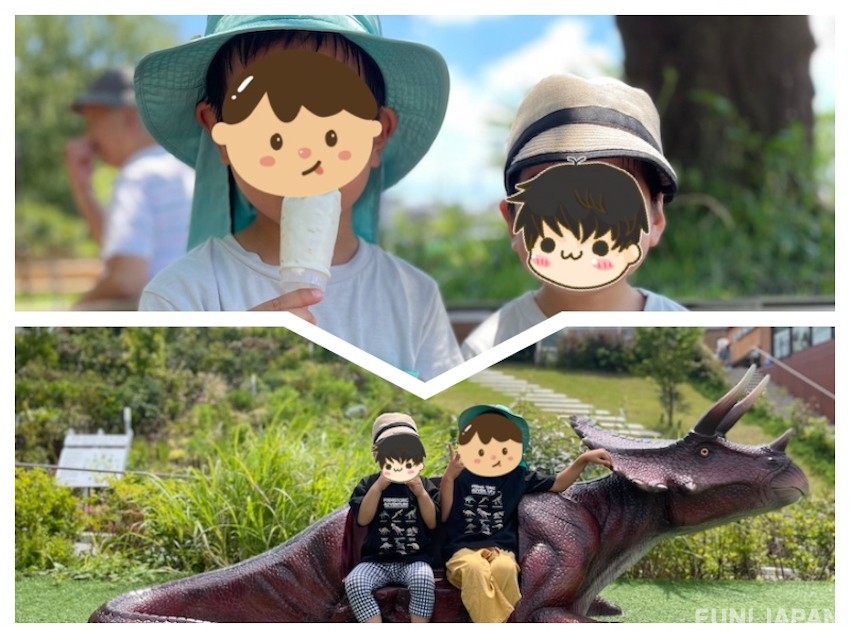
【Eldest Son】
- Gender and Age: Boy / 5 years old
- Kanji and pronunciation: "咲來" (Saku)
- The meaning & reason for the Kanji name: The two-character name and its pronunciation. We wanted it to feel modern yet traditional. We hope that he will bloom his dreams in the future (咲来 - Saku). The total number of strokes in the kanji was also considered.
- Reference: None (only checked the number of strokes in the kanji)
【Second Son】
- Gender and Age: Boy / 2 years old
- Kanji and pronunciation: "慎" (Shin)
- The meaning & reason for the Kanji name: The two-character name and its pronunciation. We wanted it to feel modern yet traditional. We hope that he will be a sincere and honest person with his own core. The total number of strokes in the kanji was also considered.
- Reference: None (only checked the number of strokes in the kanji)
How did you find the above article? Do you have a friend with the name mentioned in the article? If you have any questions or comments, please write them in the comment section.
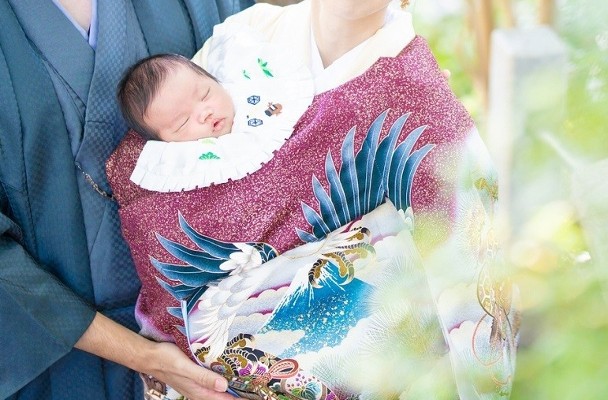
Comments